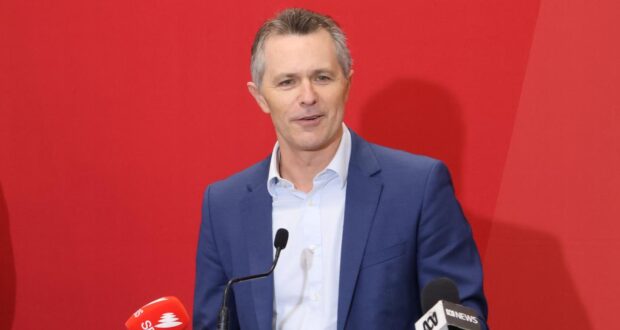The Albanese government will act on a proposal from a landmark review of the university sector to establish a tertiary education commission, amid warnings from international providers that a crackdown on overseas students is damaging the industry’s reputation.
Some industry insiders are anticipating an announcement of the launch of the Australian Tertiary Education Commission by Education Minister Jason Clare in the lead up to the May budget, following a recommendation in the Universities Accord report released last month,
In the report, review chair Mary O’Kane outlines a proposal for a commission led by a chief commissioner, with two deputy commissioners, a First Nations commissioner, an equity commissioner and the already established regional education commissioner below it.
The commission would have a broad remit to guide higher education policy, direction and funding decisions. International Education Association of Australia chief executive Phil Honeywood has called on Mr Clare to create a commissioner role to oversee international education, as the sector faces increasing pressure under a government push to halve net migration in two years.
The number of student visa rejections has soared in recent months as Labor attempts to crack down on temporary migrants using the visa category to work rather than study, referred to as “non-genuine students”.
“The IEAA board is keen to have a deputy commissioner who has got responsibility for key international education policy advice,” he said.
Mr Honeywood said the government clearly remained concerned about international student numbers but cautioned against “pushing the pendulum too far”.
Independent Tertiary Education Council of Australia president Troy Williams said the sector had for too long “navigated without a compass”, backing calls for an international education commissioner to lead a “coherent” and “consistent” strategy.
Mr Williams wrote to Home Affairs Minister Clare O’Neil to warn that recent messaging on international students could “inadvertently undermine” the sector’s reputation.
“Statements that international students can perceive as unwelcoming or overly critical of the sector have the potential to dissuade future students from choosing Australia for their studies, impacting not only our educational institutions but also our national economy and cultural diversity,” he wrote.
Higher education researcher Andrew Norton has raised concerns that the commission would be a “powerful body” that could push the Education Department to one side.
“I think a plausible reading of the Accord report is that it’s going to be a very bureaucratic interventionist approach,” he said.
Mr Clare said the government was “considering all the recommendations of the Universities Accord and will respond shortly”.
Ms O’Neil has introduced a string of measures targeting overseas students following a review of the migration system, including higher English-language requirements, a new genuine student test and activating new powers to suspend “dodgy” providers.
Higher education providers are bracing for the release of new risk ratings due by the end of the month, under which Home Affairs will assign education institutions a level between one and three based on their rate of visa refusals, cancellations, fraud and subsequent protection visa applications. Many are anticipating that some institutions which formerly held the highest ranking will receive a lower mark.
Do you have an idea for a story?Email [email protected]
 Campus Review The latest in higher education news
Campus Review The latest in higher education news

